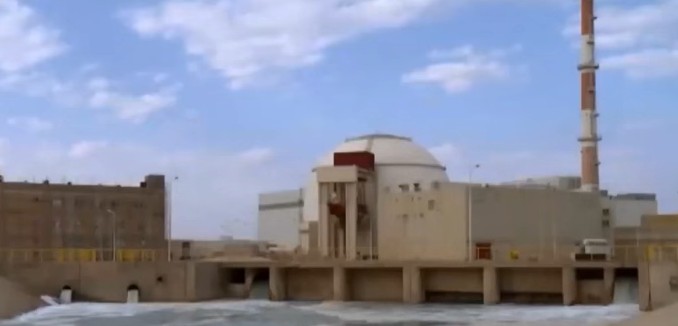A recently released investigative report by the International Atomic Energy Agency (IAEA), the United Nations’ nuclear watchdog, concluded that Iran did work on developing a nuclear weapon, despite the regime’s claims to the contrary, the Associated Press wrote on Wednesday.
The International Atomic Energy Agency’s report was significant in coming down on the side of allegations by the U.S. and other nations critical of Iran’s nuclear program that Tehran engaged in trying to make such arms. Still, the agency said its findings were an assessment, suggesting that it couldn’t deliver an unequivocal ruling on whether the suspicions were valid. …
The agency went public with its suspicions four years ago, detailing a list of alleged activities based on “credible” evidence that Tehran did work “relevant to the development of a nuclear explosive device.”
Wednesday’s evaluation says most “coordinated” work on developing such arms was done before 2003, with some activities continuing up to 2009.
The IAEA indicated that it was unable to draw a more decisive conclusion because Iran failed to provide all of the information that the agency requested.
The New York Times added that the IAEA’s report presented “a picture of a nation that was actively exploring the technologies, testing and components that would be needed to produce a weapon someday.”
Time and again, the agency seemed close to rejecting Iranian arguments that its experimentation was for civilian purposes. The inspectors found that Iran’s nuclear program was “suitable for the coordination of a range of activities relevant to the development of a nuclear explosive device” and that its experiments have “characteristics relevant to a nuclear explosive device.”
In one or two areas, notably a document provided by Western intelligence agencies indicating that Iran was looking at how to make uranium metal, a step needed for a weapon, it found “no indication of Iran having conducted activities” related to the document.
"#IAEA believes #Iran conducted experiments meant to develop nuclear weapons"
(fixes link)https://t.co/IqJM0dtEoR— Matt Lee (@APDiploWriter) December 2, 2015
The report was based on thousands of pages of evidence from American, European, and Israeli intelligence agencies, some of which was obtained from a laptop smuggled out of Iran by a technician who had access to results from illicit nuclear research projects. The computer contained details on technologies necessary for the design of a nuclear warhead.
The Wall Street Journal wrote (Google link) that Iran failed to provide the IAEA with information that would address suspicions that the regime was preparing a nuclear test. The IAEA also found that Iran’s explanations about nuclear research conducted at the Parchin military site, where Iran is believed to have tested detonators for a nuclear device, were not credible. The lack of crucial answers provided by Iran, the Journal observed, “reinforced this summer’s criticism from U.S. lawmakers that the probe into Iran’s past nuclear activities was designed in a way to allow Tehran to sidestep critical questions at little cost.”
The IAEA’s confirmation that Iran continued its nuclear weapons research until 2009 seems to contradict the American intelligence estimate in 2007 that Iran stopped such research in 2003. In 2012, Ha’aretz reported that an American intelligence assessment determined that Iran had made “surprising, significant progress toward military nuclear capability.”
Business Insider wrote yesterday that the U.S. had decided not to insist that Iran come clean about the full extent of its nuclear research. Iran’s failure to provide a complete accounting of the scope of its past nuclear activities undermines the IAEA’s ability to verify the regime’s compliance with the nuclear deal.
[Photo: ali javid / YouTube ]




